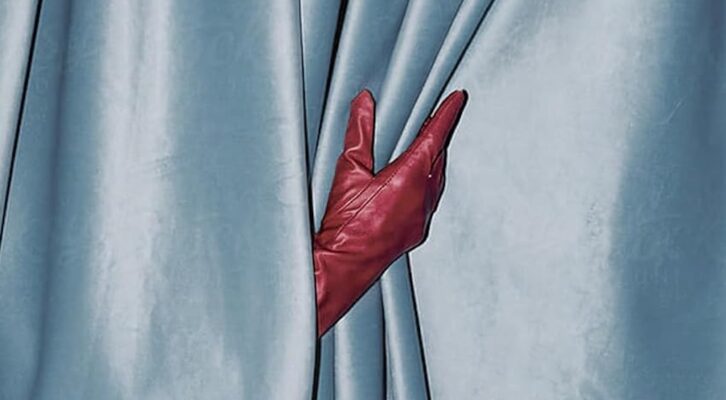Alma Katsu is the award-winning author of five novels, most recently Red Widow, The Deep, and The Hunger. Prior to the publication of her first novel, she had a 35-year career as a senior intelligence analyst for several U.S. agencies, including the CIA and NSA, where she was a National Intelligence Officer. Owen Matthews reported on conflicts in Bosnia, Lebanon, Afghanistan, Chechnya, Iraq, and Ukraine, and was Newsweek‘s bureau chief in Moscow. He is the author of two political thrillers featuring KGB major Alexander Vasin, Black Sun and Red Traitor (due July 20 from Doubleday), and several nonfiction books, including Stalin’s Children, Glorious Misadventures, and An Impeccable Sky. Ahead of their virtual event at Poisoned Pen this Wednesday, July 21 at 4pm EDT (via Facebook Live), Katsu and Matthews sat down to discuss the ins and outs of writing spy fiction.
Katsu: Congratulations, Owen, on publication of Red Traitor. I’m so pleased that we have the opportunity to talk about the pleasures and perils of writing spy novels. I’d like to start off with a question that might seem a little cheeky, but has been on my mind lately after taping a show on the spy business. The producers used historians to write it, and in reviewing the script it struck me how so much of what the public knows is shaped by historians and journalists, people who are outside the actual profession. What was it like writing about a field you can only know from the outside?
Matthews: Outside—as in, I’ve never been a spy? Will let you go on thinking that Alma 🙂 In fact during my 25 years as a foreign correspondent a good proportion of the people I met in the field were convinced that all Western journalists were spies. But for the record, in fact I only ever met two—one guy who wrote for Jane’s Defence Weekly in Afghanistan who was so interested in the serial numbers of tanks and helicopter gunships that it made no odds whether he was actually a spook or a journalist. The other was a sporty American guy who showed up at a Kurdish leaders’ press conference at a hotel in Ankara in 2002 and was immediately clocked by every correspondent in the room as an outsider. We shredded his bullshit claim to be a journalist in seconds (with help from Google) and kicked him out. But to answer your question—my first two attempts at fiction (Moscow Babylon and The Shadow of the Sword) were basically autobiographical reportage. Thanks to Hemingway, I thought that was how you wrote fiction. About 90% of the incidents, characters and settings were based on my direct personal experience in Moscow in the 1990s, Chechnya in the second war and Ukraine in 2014. The novels were terrible—or at least, it didn’t work and came across as unbelievable. For some reason writing about characters and places I know only from films, books or my imagination—as I do in the Black Sun Trilogy—feels much truer than fiction closely based on my own life. Go figure.
Katsu: For my part, the challenge is how do you write realistically about a field when your audience’s perceptions have been shaped, largely, by television and movies. One of the main reasons I wanted to write Red Widow was that women in intelligence haven’t been well represented in pop culture: we’re often portrayed as sex objects or sidekicks, or the anomaly in a man’s world. Whereas in reality, we’re professionals, albeit needing to navigate our jobs and careers in a slightly different way than men. Since the novel came out, I’m proud to report that I’ve received tons of praise from former intel officers saying it’s the most accurate representation of CIA’s culture that they’re ever read.
That’s why I decided to tackle the genre. What drew you to write spy fiction?
Matthews: Reading spy thrillers. Though actually, I’m not convinced that the genre label is at all meaningful. The best spy thrillers—John Le Carré is the perfect example—are actually simply great novels for our times which happen to be set in the clandestine world. Why aren’t Joseph Conrad or Jack London or Fyodor Dostoyevsky known as thriller writers? Their books are pretty darn thrilling. Crime and Punishment is a murder mystery told from the point of view of the killer.
Katsu: Was there something you felt was lacking in the genre that you wanted to correct? Something overlooked that deserved to be highlighted?
Matthews: Every writer needs his protagonist to have a secret, and for him to be hunted. And the world of spies gives you that plot structure on a plate—what greater secret is there than to be a spy, and what better chase is there than a spy hunt? As for wanting to correct a genre or highlight a point, I think every writer worth their salt writes because they think they can tell a story better, move movingly, more excitingly, than the next guy. I would add that most of the actual spies that I have known are actually far less interesting and lead much more boring lives than one would like to imagine, so that banal reality needs to be corrected with a heavy dose of fictional jeopardy.
Katsu: William Colby said the ideal spy is “the little gray man” who is ubiquitous and therefore overlooked, and so can slip in and out without being noticed. They may be less interesting on the surface, but what’s going on underneath is where the real drama lies.
Let’s switch gears for a moment. You’ve quite a lot of experience with Russia, having worked for the Moscow Times, as writer for the TV show Londongrad, among others. Should we assume that you have special insight into the Russian point of view?
Matthews: What’s a Russian point of view? There’s no more a Russian point of view than there is an American one. For example—Rachel Maddow and Donald Trump. Same nationality, different views 🙂 As it happens I personally don’t know any Russians socially who admire Putin. Apart from my mother, that is, but she’s a bit gaga.
Katsu: What do you think that we in the West get wrong about Russia?
Matthews: Russia is dangerous not because it’s powerful and well organized but because it’s weak and ridiculously chaotic. Putin isn’t an evil genius, he’s very poorly informed and lucky, with only one key skill—he’s good at opportunistic disruption. He’s not even fully in control of his own murderous security services, which if you think about it is much scarier than if he were. In every discussion about Russia between a Westerner and a Russian, the Westerner will always argue that things in Russia could be better, the Russian will argue that his country could be much, much worse. Both would be right. As for what Western writers get wrong about Russia, my pet peeve is names. Why are so many novels about Russia full of characters with names that don’t actually exist in Russian? How hard can it be, guys?
Katsu: And what about Russia’s view of the West? What should we know about how they think of us?
Matthews: Russians are convinced—or more precisely, the Kremlin propaganda machine has successfully convinced Russians—that the West hates and fears Russia’s might and is working day and night to keep them down. If you look at polls, an alarming number of Russians believe that the West is actually at war with Russia right now through subversion and propaganda and funding opposition activities to undermine law and order and sow chaos. The reality—which is the West doesn’t, for the most part, care that much—is too painful to contemplate. It’s like a divorced couple where the weaker party hates the other and is convinced that they remain as obsessed with their ex as they are.
Katsu: It’s quite the dysfunctional relationship, made all the worse because Russia has a national culture of propaganda. It can’t be exorcised from their psyche and I’m afraid it’s being rather expertly exported here, as well as to other countries. I say this based on years of work as a social media researcher, working with some of the top researchers of online disinformation, as well as my time in open source intelligence, which is (basically) the study of propaganda.
Let’s switch gears again and look at espionage through the historical lens. What was the appeal of writing a historical spy thriller?
Matthews: Cold War = high stakes. The imminent threat of nuclear war during the Cuban Missile crisis is about as thrilling a situation as you could want as a writer.
Katsu: And why were you drawn to this particular point in time?
Matthews: I am drawn to novels that are closely based on real events and situations—whether it’s Le Carré’s Little Drummer Girl or Hilary Mantel’s Cromwell trilogy. Since we’re talking about fiction here, that desire as a reader to get to the emotional truth of history by means of characters that someone has just imagined in their heads is a little irrational. But in this case there were two extraordinary true stories that happened in 1962 that fascinated me—the drama of the CIA spy Oleg Penkovsky, and the events on board the Soviet submarine B-59 off the coast of Cuba at the height of the Missile Crisis that came within a whisker of triggering a nuclear war. I decided to weave them together using my investigator protagonist as a link. Maybe it’s because we know that real people made these extraordinary decisions that our imaginations demand to know more, to get inside their heads, to explore why these men acted as they did and how it might have felt to have the fate of the world in your hands. Though the real truth of it, I suspect, is that anyone who happens to have the fate of the world in their hands doesn’t realize it at the time and probably wishes that it was someone else’s problem.
Katsu: Is there anything you want to say about these particular characters? As a writer of historical fiction myself—horror fiction, nothing to do with the world of spies—I know it’s tricky, deciding how to turn real people as fictional characters.
Matthews: An excellent question. In Black Sun, all my protagonists were closely based on real people but didn’t actually bear their names. In Red Traitor that’s also true except for one man—the submarine captain Vasily Arkhipov. I could easily have given him a different name but chose not to mostly because he’s such a remarkable and little known figure that I wanted readers to know who he was and what he did. There aren’t many men in history who quite literally saved the world from nuclear holocaust. My fictional portrait of Arkhipov is based on the memories of his comrades in arms and his wife and is pretty much wholly sympathetic. If he had been less of a hero in the story I would have changed his name—as I did for my morally ambiguous and flawed stand-in for the spy Oleg Penkovsky, whom I call Oleg Morozov. It’s bad karma to traduce real people you’ve never met. People you have met, however, are fair game.
Katsu: That’s a clever way to handle it. I went from staying very close to the historical record, using real people as the characters in my novels, to using mostly fictional characters who were aggregates of the actual people or representative of a type in the one that’s coming out spring 2022, The Fervor. That one in particular, which is about the Japanese internment, is very personal for me, my in-laws’ family having been interned at Topaz.
Thanks so much for the fascinating talk, Owen, and for the fascinating novel looking at the Cuban missile crisis from the Russian side.



















